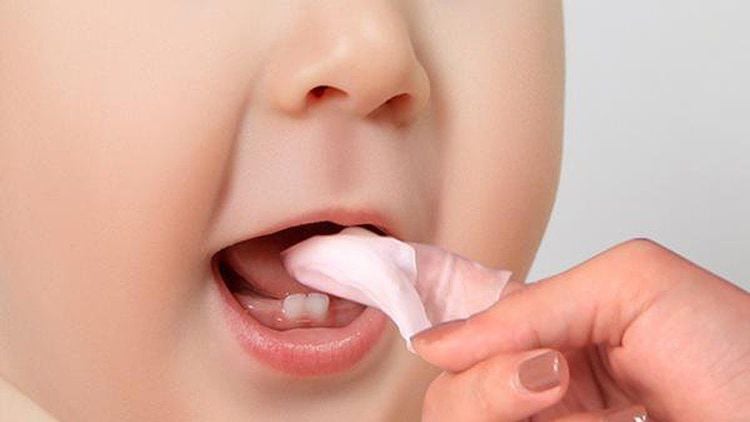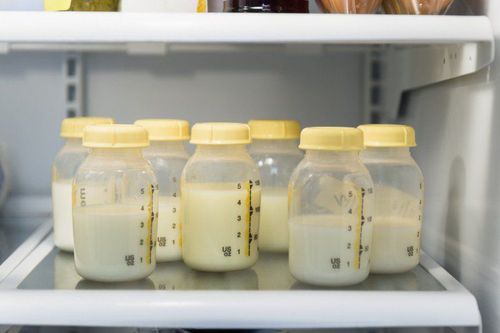Most babies start teething between 6 and 9 months, when their first teeth begin to emerge. However, this process can sometimes be delayed in some children. Several factors can cause teething delays and may impact a child's overall development. This often leads parents to wonder if there are ways to help their baby grow teeth faster. The following article will provide answers to this question.
1. What Causes Delayed Tooth Growth in Children?
A child’s first teeth, known as baby teeth, play an important role in developing and aligning their permanent teeth later on. Typically, baby teeth grow between 6 months and 30 months of age. However, some children experience slower tooth growth than their peers.
If your child has reached 1 year old and still shows no signs of teething, it’s important to take them to a healthcare professional for a check-up and accurate diagnosis. In addition to seeking professional advice, parents can explore potential causes and solutions for delayed tooth growth. Common causes include:
- Premature birth or low birth weight.
- A daily diet lacking essential nutrients like calcium and vitamin D, which are crucial for bone and tooth formation.
- A family history of delayed teething.
- Reduced thyroid activity (hypothyroidism).
- Enzyme deficiencies hinder tooth buds from emerging through the gums.
- Dental issues such as cavities or gum disease.
2. Factors Influencing Tooth Development
Understanding the factors that affect tooth development can help parents take preventive measures and ensure a suitable diet to support tooth growth.
2.1. Nutrition
A balanced and nutrient-rich diet is essential for healthy tooth development. Additionally, the mother’s diet during pregnancy significantly impacts the child’s dental health. Baby teeth and permanent teeth start forming in the fetus as early as the eighth week of pregnancy. Therefore, the mother's diet needs to be fully supplemented with calcium, vitamin D, minerals... to help create the child's bones and teeth.
A lack of nutrients can disrupt gum and tooth formation, slowing the growth process. The first three years of a child’s life are critical for nutrition as enamel mineralization occurs during this time, directly affecting the growth and development of teeth.
2.2. Children with anorexia and Malnutrition
Children with anorexia or malnutrition often lack the essential nutrients and minerals required for healthy tooth development.
2.3. Low Milk Intake
Milk is a vital source of calcium for children’s bone and tooth development. If a child drinks insufficient milk, it can slow down the growth of teeth and weaken dental health.

2.4. Limited Sunlight Exposure
Sunlight is crucial for synthesizing vitamin D, which plays a significant role in strengthening bones and teeth.
3. How to Help Children Grow Teeth Faster
Delayed tooth growth can lead to negative effects such as increased pain when teeth emerge, reduced chewing ability affecting digestion, and a higher risk of speech issues like lisping. Here are some methods parents can try to help their child grow teeth faster:
3.1. Gum Massage
Massaging your child’s gums can stimulate tooth buds to emerge and reduce discomfort during teething. To do this, clean your hands thoroughly, lay your baby down, and gently rub their gums using a clean finger. Gum massage can also help soothe babies who have trouble sleeping or cry during teething.
3.2. Using Cold Cloths or Chilled Teething Toys
Mother can give their child a cold cloth or a chilled pacifier to chew on, as this can help stimulate the process of tooth growth. However, the use of pacifiers should be limited, as they carry a high risk of causing congenital misalignment issues such as underbites or overbites.
3.3. Using Chive Leaves
Chive leaves are known for their anti-inflammatory properties, which can reduce swelling and stimulate tooth growth. To use this method:
- Prepare 7 fresh leaves for boys or 9 for girls.
- Wash and grind the leaves to extract the juice.
- Dip a cotton swab in the juice and gently apply it to the child’s gums. Note that the slightly spicy taste may cause discomfort.
3.4. Sunbathing
Sunlight helps the body produce vitamin D, which is vital for strong teeth and bones. The ideal time for sunbathing is between 6 a.m. and 8 a.m. Daily sun exposure not only supports healthy teeth but also boosts the immune system and prevents stunted growth.

3.5. Ensuring Proper Nutrition
Nutrition plays a crucial role in the growth and development of teeth. Parents should focus on providing a balanced diet that includes:
- Calcium: Found in milk, cheese, yogurt, shrimp, crabs, fish, and beans, calcium is essential for strong teeth and bones. Sun exposure can also enhance calcium absorption.
- Vitamin D: Helps the body absorb calcium. Sources include sunlight and foods like eggs and fish such as mackerel and catfish.
- Phosphorus: The second most abundant mineral in the body, phosphorus works with calcium to maintain strong teeth and bones. It is found in both plant-based and animal-based foods, with higher bioavailability in animal-based sources.
- Magnesium: Plays a role in bone and tooth mineralization alongside calcium. Foods rich in magnesium include fish, green vegetables, beans, avocados, and nuts.
- Vitamin C: A deficiency in vitamin C can lead to gum inflammation, bleeding gums, and tooth loss. Citrus fruits like oranges, lemons, and grapefruits are excellent sources of vitamin C.
- Vitamin A: In addition to preventing night blindness, dry eyes, and protecting vision, vitamin A also supports normal bone and tooth development, protects skin mucosa, and strengthens the body’s immune system against harmful pathogens. Foods rich in vitamin A include eggs, liver, meat, and dairy products.
In addition to a balanced diet, parents should limit their child’s intake of sugary snacks and beverages. Regular dental check-ups are also essential, especially if the child’s teeth are growing slowly. This allows for early detection of dental issues and related conditions, enabling timely treatment.
Please dial HOTLINE for more information or register for an appointment HERE. Download MyVinmec app to make appointments faster and to manage your bookings easily.













